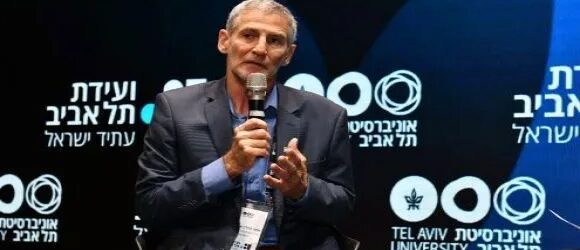The event included decision-makers, media professionals, academic staff, cultural figures and family members of the hostages.
A diverse crowd gathered last week at the Tel Aviv University campus to attend the “Tel Aviv Conference – The Future of Israel”. The conference aimed to address the current state of Israeli society and explore possible ways to move it forward from as many perspectives and fields as possible. The goal was to broaden and deepen the discussion, making relevant research knowledge accessible and fostering a multidisciplinary perspective characteristic of the university’s work. It aimed to create an open dialogue with representatives from different parts of Israeli society and its leadership in all its diversity.
The conference included plenary sessions and roundtable discussions focusing on the social, political, security, and economic aspects of Israel’s future.
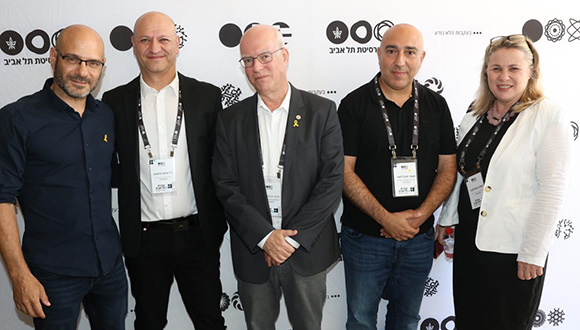
Panel on Israel and the Palestinians, from Left: Ohad Hemo, Dr. Michael Milshtein, Prof. Ariel Porat, Samer Sinijlawi and Ksenia Svetlova.
Israel’s Police Commissioner Yaakov Shabtai said earlier at the conference: “The police in a democratic country must be free, with absolutely no politics. It must remain autonomous. Free of any political bias, one way or another. This is the only way to guarantee police independence”.
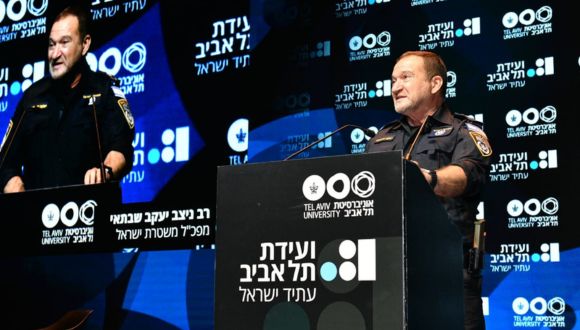
commissioner Yaakov Shabtai.
Hostages’ Families Call for Action
No eye in sight remained dry when Shir Siegel, whose mother Aviva was released from Hamas captivity while her father Keith is still helled in Gaza, Ella Ben Ami, whose mother Raz was released from captivity while her father Ohad is still a hostage, and Nofar Buchshtab, whose brother Yagev is still helled in Gaza, took the stage for a special interview on the fight to free the hostages.
The three young women shared their difficult feelings about their treatment by decision-makers and the dilemmas and challenges they and their families face daily for almost nine months now.
Shira Siegel: “I look at you; there are professors and lawyers and lecturers and people with a lot of experience here, and I want to ask each of you, if I could, what have you done to bring my father home, what do you plan to do to bring the hostages home? And do you, like many of the people of Israel, feel that you don’t have enough power or influence or don’t know enough?”
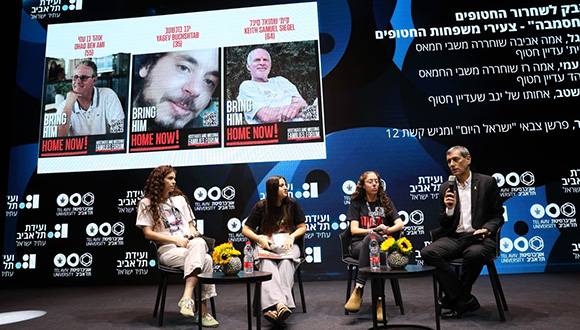
from Left: Shir Siegel, Ella Ben-Ami, Nofar Buchshtab and Yoav Limor.
“I’m worried for Jews in Germany and in Europe. The fact that there’s so much bullying and harassment. You don’t fight antisemitic bullies with laws alone”- German Ambassador to Israel Steffen Rüdiger Seibert.
He continues, “I don’t see all of Europe and Germany following Spain and Ireland in their recognition of a Palestinian State. We believe that a sustainable solution should be in the form of a peace agreement based on two states, with all security arrangements, because first of all the principle of Israel’s security should be preserved”.
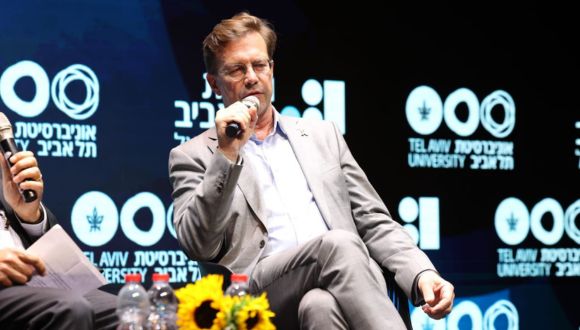
Ambassador Steffen Rüdiger Seibert.
State Comptroller of Israel Matanyahu Englman spoke: “We were prepared with transcripts of conversations that I believe all Israeli citizens want to know about, particularly talks between the Prime Minister and the military secretary. This is essential information for understanding the events of October 7th. The Prime Minister’s Office has instructed us, in light of the Supreme Court’s ruling, not to pursue this further, but we cannot ignore our duty”.
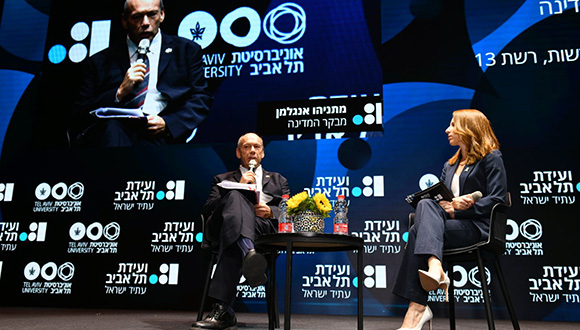
State Comptroller Matanyahu Englman.
National Unity leader Benny Gantz: “The majority of parties should agree that even during the election period, we will support any progress towards the return of the hostages”.
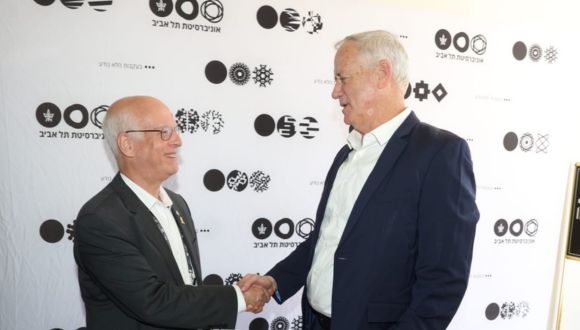
Prof. Porat shaking hands with Benny Gantz.
The event was sponsored by the Kadar Foundation for Culture, Art, and Science, and by Avraham Kadar.
